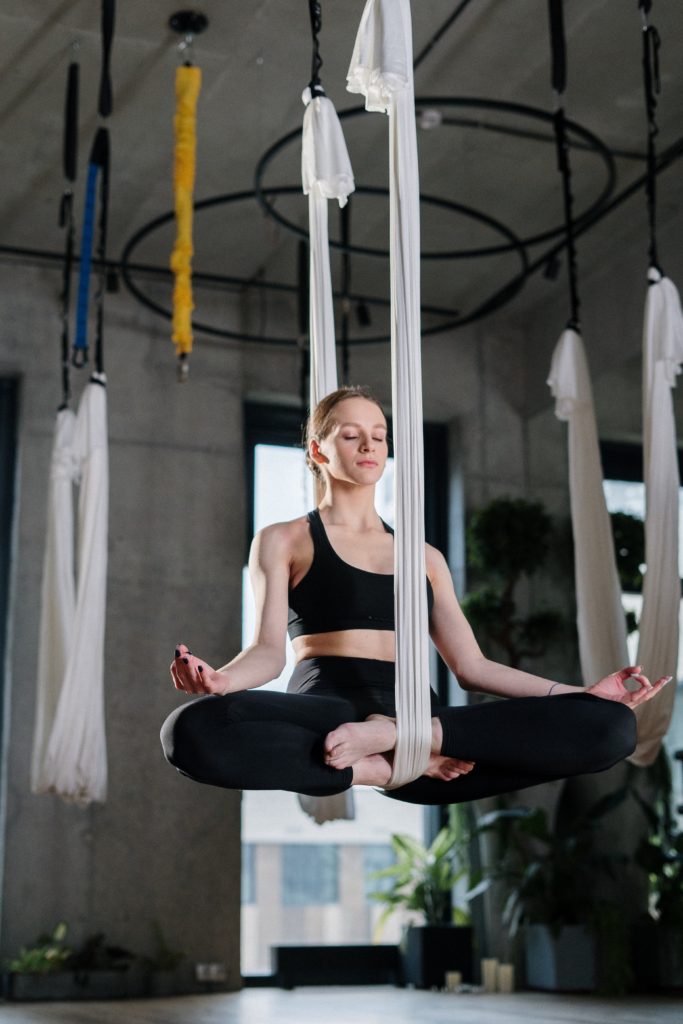What is self-care?
Self-care is a term that is being bounced around a lot lately… and I’m pleased. Not long ago, and maybe even still now in some circles, ‘busyness’ was worn as a badge of honor. “I’m busy” could mean; I’m important; many people rely on me, and I’m not lazy because I have lots to do. Having time to nurture one’s self can be seen as being lazy, or not wanting to do whatever it takes, burning the candle on both ends, to achieve what society deems as important. But too much busyness can ultimately lead to burnout if you don’t take time to recharge.
Not only will burnout affect you mentally, but also physically. Burnout and exhaustion can lead you to feel out of control, unable to see a clear road ahead, and ultimately frustrated with life. I’m so pleased that ‘busy’ has become less sexy and what women want more of, is self-love and self-care.
I love that people like Arianna Huffington are standing for and declaring that self-care is important. Arianna who is the co-founder and editor in chief of The Huffington Post (if you’ve been living under a rock :-)) has authored a book called ‘The Sleep Revolution’. In it, she talks about how our ‘hustle at all costs’ culture leading to sleep deprivation is really affecting our lives. Dismissing sleep as ‘a waste of time’ really compromises our health and the quality of our lives. I mean who has the energy and patience for kids, life, laughter, and sex when they’re sleep deprived?
But self-care is more than just sleep. Sleep is a necessity and probably one of the basic human needs to thrive, but you can also nurture and feed yourself spiritually, physically, and mentally in order to recharge.
That is where the Self-Care Wheel comes in. It neatly breaks down the various components that you should consider when putting together a self-care plan for yourself.
What is the Self-Care Wheel?
The Self-Care Wheel is a positive, empowering tool that can help you to really break down your needs into 6 domains. Think of it as a pizza cut into six slices, and like pizza, one piece just isn’t enough. The Self-Care Wheel was created by Olga Phoenix, an internationally recognized resilience, well-being, vicarious trauma, and compassion fatigue prevention expert, speaker, and author based in St. Petersburg, Florida. The Self-Care Wheel was inspired by and adapted from ‘Self Care Assessment Worksheets’, by Saakvitne et al.

The Self-Care Wheel is essentially about balance. When you neglect one sector of the wheel, it affects other parts too. For example, neglecting your emotional side can lead to mindless eating, affecting your physical and psychological well-being.
Aspects of Self-Care
The six aspects of self-care are: psychological, emotional, spiritual, personal, professional, and physical. You will need to nurture all aspects to thrive. So don’t go picking the ones you prefer. It’s the whole damn pizza, girl.
So let’s break it down.
Physical self-care
According to the Self-Care Wheel, there are a number of things you can do to nurture yourself physically. These are:
- Safe housing
- Regular medical care
- Eat healthily
- Exercise
- Be sexual
- Get enough sleep
- Take vacations
- Take time off
- Massages
- Acupuncture
- Bubble baths
- Kiss
- Ask for nurture
- Take a walk
- Turn off the cell phone
- and enjoy ‘me’ time.
Now, these ideas might not all necessarily resonate with you. You may love massages, need safe housing and regular medical care, but have absolutely no interest in sex. These are of course ideas that you can choose from to create your self-care plan.
I suggest you start with physical needs as the first sector of the wheel to work on. If you think about Maslow’s Hierarchy of Needs, physiological needs are the most basic of human needs and required to be met before moving further up the hierarchy. Maslow’s hierarchy of needs is a motivational theory in psychology that comprises a five-level model of human needs in the shape of a triangle. By physiological needs, we’re talking about food and clothing, not sex. But you get the idea. You first need warmth and protection from the elements before you can think about the needs higher up in the hierarchy, such as love and belongingness.
Psychological self-care
Again, similar to Maslow’s hierarchy of needs, it’s important to nurture our psychological well-being. Self-care in this area can be done by:
- Journaling and being self-aware
- Painting
- Drawing
- Going to a symphony or the ballet
- Sitting in the sun
- Gardening
- Reading a self-help book
- Thinking about your positive qualities
- Joining a support group, and
- Practicing to ask for and receive help
These ideas may not resonate with you. What about pottery, swimming, or a team sport? The list goes on. The idea is to do something that puts you in the moment and can help you to figure things out for yourself.
Emotional self-care
The emotional and psychological areas of self-care are inextricably linked. Emotions can affect your psychological well-being and vice versa.
So what does the Self-Care Wheel suggest you do to nurture your emotional well-being?
- Say affirmations about yourself and your life
- Love and be kind to yourself
- Show yourself compassion
- Love as much as you can, and cry when you need to
- Watch a funny movie
- Find a hobby
- Flirt (as long as it doesn’t affect an existing relationship)
- Buy yourself a present
- Cuddle with your pet
- Practice forgiveness,
- Tell yourself you are gorgeous. 😉

Spiritual self-care
Looking after your spirit is another part of self-care, equally important and needed for balance. Spiritual self-care is quite similar to emotional and psychological self-care. The Self-Care Wheel contains the following ideas for spiritual self-care:
- Self-reflection
- Spend time in nature
- Meditation
- Find a spiritual community
- Pray
- Self-cherish
- Sing, dance, and play
- Bathe in the ocean
- Watch sunsets
- Volunteer for a cause
- Practice self-forgiveness
Personal self-care
Personal self-care is getting to the core of who you are and honoring that. We’re all unique and you have certain desires and interests that bring out the best in you and make you smile. The key is to find out what they are and plan your life in a way where you have the opportunity to do more of the things that resonate with you. The Self-Care Wheel gives the following ideas for personal self-care:
- Learn who you are
- Figure out what you want in life
- Plan short and long term goals
- Create a vision board
- Foster friendships
- Go on dates
- Get coffee with a friend
- Get out of debt
- Write a poem or book
- Take time for yourself to relax
- Spend time with your family
- Learn to play the guitar
- Taking part in a cookout
Professional self-care
This part of the Self-Care Wheel relates to work. As much as we’d like to think that work is work and not part of our personal lives, work can affect our personal lives because we’re not robots. It applies the other way too. What happens in our personal lives can creep into our work life. The Self-Care Wheel suggests the following to help you nurture your professional life:
- Take time for lunch
- Set boundaries
- Do not work over-time (if you can help it). If you do have to work over-time, monitor your well-being, and if it starts to impact you, speak to your supervisor and assess whether the job is right for you.
- Leave work at work
- Do not work during your time off
- Get regular supervision
- Get the support of colleagues
- Take mental health days
- Learn to say no
- Plan your next career move
- Take a class
- Take your vacation and sick days (where needed)
How do I get started?
Now it’s time to create your own self-care wheel.
Step 1 – Assess
To start off by putting together a self-care plan, you’ll want to take a look at your life and assess it by considering the six domains. You may discover one area that is really letting you down and affecting the other domains of your life.
On the other hand, you may discover that all areas need equal work. Either way, you will need to look at each domain to see what you can improve in each and ensure you’re not neglecting one or more for the sake of others.
So download a blank copy of the Self-Care Wheel, or write down the headings in your journal, and find the suggestions in the Wheel that really resonate with you. You may find that what’s listed under a particular domain doesn’t really resonate with you but you can take ideas from it. For example, going to the ballet may not interest you at all but a rick concert suits you fine. You’ll also need to take into account any lockdowns and restrictions in relation to Covid-19.
Step 2 – Plan
Now that you have assessed your life against the domains and considered the activities you can carry out to nurture each part of your life, write down a plan on how you attend to achieve it.
For example, let’s say one of your priority areas is physical self-care and you think you’ll benefit from exercising more often. You’ll want to look at your life and see how you can fit in the exercise. You can resolve to finish work at 5pm rather than hanging around trying to squeeze in more work at the end of the day. By saving time there, you can exercise 3-4 times a week. You can’t implement it and keep it going without a plan.
Step 3 – Implement
Now that you have a plan, act on it. If it’s a realistic plan, it should outline exactly how you will achieve the things you set out to achieve. Now you need the motivation to act on it.
Sometimes when we start a new habit, our body and mind will resist. We can get stuck in a rut and research tells us that habits can be hard to break.
You’ll need to work hard at it and remind yourself of the reason you want to change. Visualize the future as having succeeded and let those emotions wash over you. Marinate in them. This will help you to pull through when it’s hard. Be kind to yourself in the process and don’t be discouraged if you fail. Life is an infinite game. “In infinite games, like business or politics or life itself, the players come and go, the rules are changeable, and there is no defined endpoint. There are no winners or losers in an infinite game; there is only ahead and behind,” says Simon Sinek, author, and leadership guru. So keep trying and love yourself in the process.


Comments are closed.